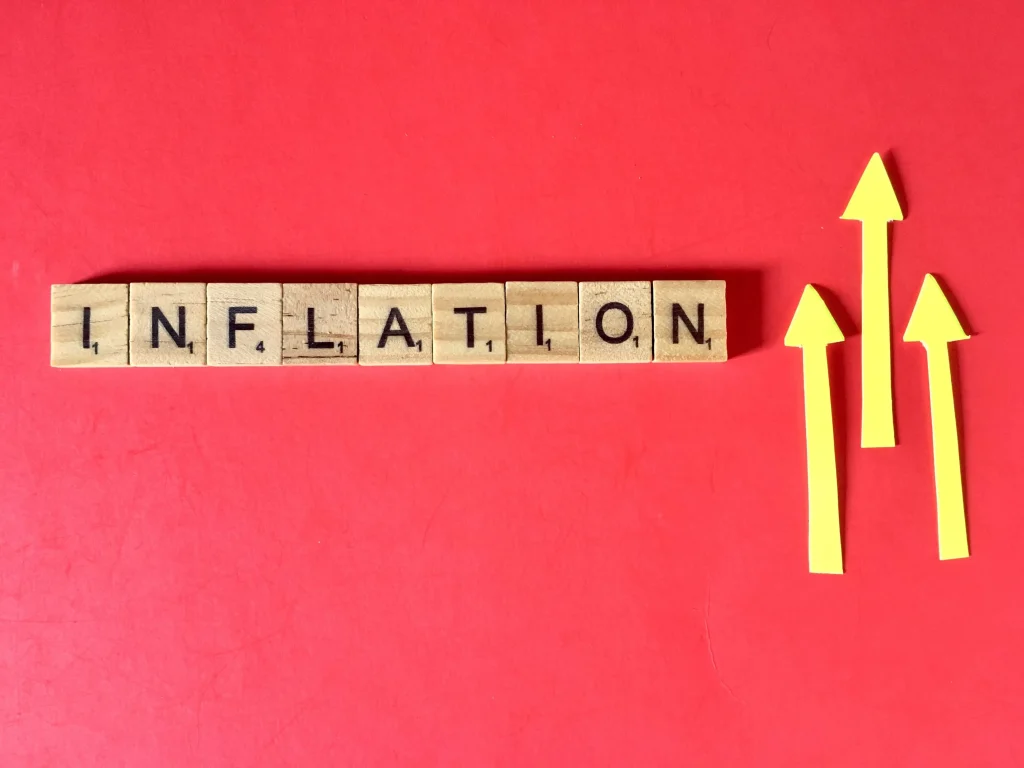The World Bank has downgraded the Philippines’ growth forecast to 5.6% due to high inflation and weak global economic conditions. The economy expanded by 4.3% in Q2, slower than previous quarters. The bank expects annual GDP growth of 5.8% for 2025 and 2028. Inflation is expected to average 5.9%, and poverty incidence is expected to decline. Philippine economic activity is supported by domestic demand. With this, the Philippine economy can be perceived as struggling once again. However, real estate investment remains the most promising combat to increase financial stability amidst the pandemic. Many real estate properties are prestige and can offer financial security with Crown Asia’s house and lots for sale.
The World Bank Cuts the Philippines Economic Growth 2023

According to Philstar (20230, in light of the Philippines’ high inflation and the poor state of the global economy, the World Bank has revised its growth projection for the country for this year.
According to the World Bank’s first week of the month’s release of East Asia and Pacific October 2023 Economic Update report, the multilateral lender now anticipates the Philippines to record 5.6 percent growth for this year.
This prediction is less optimistic than the World Bank’s six percent GDP growth forecast for the Philippines for this year, which was released in June.
Additionally, it falls short of the government’s aim for this year of six to seven percent economic growth.
According to Ergys Islamaj, senior economist for East Asia and the Pacific at the World Bank, “GDP growth in the Philippines is projected to moderate to 5.6 percent in 2023 from 7.6 percent in 2022 due to still elevated inflation, tight financial conditions, and a weak external environment,” during an online briefing yesterday.
The Philippine economy grew by 4.3 percent in the second quarter, which was less than the first quarter’s 6.4 percent growth and the second quarter of last year’s 7.5 percent growth.
According to Reuters (2023), As stubbornly high inflation may need a “higher-for-longer policy rate path,” the Philippine economy is on track to grow this year, but most likely at a slower rate, according to a report released on Tuesday by the International Monetary Fund (IMF).
Following a downturn in second-quarter GDP, the Fund said it reduced its growth prediction for the Philippines from a July estimate of 6.2% to 5.3%. At the same time, it expects inflation to remain high, which will impact consumer demand.
The central bank may decide to hold interest rates if inflation in the Philippines averages around 6.0% this year before declining to 3.5% in 2024, as predicted by the IMF. more fruitful (PHCBIR=ECI).
“A higher and longer path of policy rates is therefore warranted until inflation falls sharply within the target range, with a tightening bias to anchor inflation expectations,” the Fund stated in a news release.
The central bank held interest rates unchanged during its most recent two sessions, but it left the door open for future rate increases in order to reduce inflation, which accelerated to 5.3% in August from its target range of 2.0% to 4.0% for the year.
The Philippine economy is expected to grow by 6.0% in 2024, which is quicker than the prior forecast of 5.5%, according to the Fund.
The government’s targets of 6.0% to 7.0% this year and 6.5% to 8.0% next year were not met by the IMF’s updated predictions.
Projection of inflation for the first quarter of 2024

The World Bank forecasts 5.8 percent annual GDP growth for the Philippines between now and 2025.
In terms of the prognosis for inflation, the World Bank predicts that inflation in the nation will average 5.9 percent this year, a small increase from the 5.7 percent forecast it made in June.
The World Bank predicts that inflation in the nation will decline to 3.6% the following year and to 3% in 2025.
Due mostly to greater increases in food prices, the nation’s headline inflation rate increased to 5.3 percent in August, reversing a six-month downturn. This lifted the average inflation rate for the period from January to August to 6.6 percent.
Aaditya Mattoo, chief economist for East Asia and the Pacific at the World Bank, stated that slowing global growth is the key issue for the countries in the region.
Like all the other nations in the region, the Philippines depends on exports to the outside world, particularly in the area of services. Additionally, a large number of Filipinos work abroad and send money home as remittances. According to him, each of these elements is related to the state of the world economy.
He claimed that domestic demand, driven by private consumption, is anticipated to underpin and sustain Philippine economic activity.
Recent changes made by the country, such as the Public Service Act (PSA) revision, which is likely to make it easier for investments to flow into the telecommunications and transportation sectors, are expected to provide growth a further boost.
“The PSA reform is estimated to increase total factor productivity by an average of 3.2%, as it promotes competition in key sectors and facilitates technological spillovers,”according to research published by the World Bank.
If the PSA reform is fully implemented, the metals and electronics industries, which have the highest quantities of transportation and telecommunications in their input mix, are expected to experience a productivity rise twice as large as the average sector, at 6.4 percent.
The World Bank stated that major external risks, including persistently high global inflation and ongoing geopolitical uncertainty, could significantly affect its prognosis for the Philippines and result in a protracted period of high global policy rates.
The report warned that a weaker-than-expected rebound in China could further stifle trade.
The El Niño weather phenomena and potential shocks from natural disasters, which could have an impact on inflation and impair domestic demand, are among the domestic threats identified.
Finally, the World Bank warned that delays in the government’s catch-up expenditure program “could have negative effects on short-term growth prospects.”
How will inflation affect the Philippine economy in 2024?

A crucial economic indicator, inflation impacts a nation’s currency’s purchasing power and, in turn, the welfare of its population. Like many other countries, the Philippines is anticipated to see major effects from the rate of inflation in 2024 on a number of different economic sectors and the daily lives of its citizens.
Erosion of Purchasing Power
The Philippine peso’s purchasing power declines as inflation picks up speed. This implies that Filipinos may have more difficulty affording the same number of goods and services they formerly did, especially for necessities like food, fuel, and housing.
Interest Rates and Costs of Borrowing
In order to fight inflation, the Bangko Sentral ng Pilipinas (BSP) frequently modifies interest rates. If inflation stays high, the BSP may increase interest rates, increasing the cost of borrowing. This may have an impact on companies and people looking for loans for mortgages, investments, or other financial requirements.
The effect on savings
The value of savings stored in conventional savings accounts can be diminished by high inflation. Savings may need to consider riskier, higher-yielding investments like bonds or equities in order to maintain their purchasing power.
Social Consequences
Low-income households may be disproportionately impacted by inflation, which could result in financial hardship and social unrest. To help its most defenseless inhabitants, the government may need to prioritize social safety nets.
Business expenses
Rising expenses for inputs like electricity and raw materials can raise the cost of manufacturing for firms. If they do, it may raise the total inflation rate if businesses pass these expenses forward to consumers.
Investment-Related Effects
Inflation can have an effect on investments in stocks, bonds, and other financial instruments. For instance, stocks are frequently thought of as providing protection against inflation, whereas bonds may depreciate when interest rates rise.
How to strengthen your finances despite inflation

The impact of inflation on the purchasing power of your money makes it harder to achieve your financial objectives. Although you might not be able to influence inflation rates, you can influence how you handle your money in response to them.
Smart Spending
A key component of managing inflation is developing and adhering to a well-thought-out budget. You can find areas where you can cut back and reallocate money to requirements by keeping track of your income and expenses. Reduce discretionary spending on non-essential products while putting housing, utilities, and food expenses first.
Cost-cutting techniques
Create a budget first, accounting for current inflation rates and price changes. Next, analyze your spending by going line by line through your expenses. Reduce spending in areas where it is higher, stop making any unnecessary purchases, and think about finding less expensive alternatives.
Look for ways to save money in your day-to-day activities. Finding discounts, using coupons, and looking for more affordable options are a few examples of how to do this. To save fuel expenditures, for instance, think about carpooling, taking public transit, or combining journeys.
Increase your income through passive income
If you are aiming to ease up your financial challenges with Philippine inflation, having a passive income is a good strategy. With passive income, you can earn money without exerting much effort or focusing too much on your investment. Hence, you can still comply with your daily jobs or other businesses.
Maintaining a continuous cash flow is a smart plan during high inflation. However, as an investor, you must be able to know how to take risks and also recognize which investment opportunities are cash grab during high inflation.
Your money loses value due to inflation, so you must raise your income to keep up with rising costs. This can entail requesting a pay increase at work, accepting a part-time position, freelancing, or looking into investment options. Having multiple sources of income might increase your financial stability.
Wise Investment
It’s important to put your money into things that could grow faster than inflation. Think about investing in securities such as stocks, bonds, real estate, or other assets that historically have provided returns greater than the rate of inflation. Investing carries risks, so do your research or speak with a financial professional.
Among all investment opportunities, real estate investments are the most preferable approach in saving up money/ The price of properties appreciates over time, hence security in money is safe.
Real estate investment is the best combat inflation

Real estate has long been regarded as one of the finest assets for outpacing inflation because it consistently produces returns that do so. Here are a few factors that make real estate enticing for individuals seeking to outperform historical inflation-adjusted returns:
Real estate has a history of increasing in value over time.
The real estate market will always experience ups and downs, but long-term trends have demonstrated that property values generally increase with time. Since the value of a property can rise faster than the rate of inflation, this appreciation can be especially important during periods of inflation.
Rent Revenue
A constant stream of rental revenue from real estate assets can help investors stay ahead of inflation. Particularly in locations with rapid population and job growth, rents can rise over time. As a result, rental income has the potential to grow over time and act as an inflation hedge.
Real estate is a tangible asset that can provide buyers it a feeling of security
Real estate is a tangible asset that can be seen and handled, as opposed to stocks or bonds, which can be impacted by market swings and other variables that are out of the investor’s control. Because of this, it may be a very appealing choice for people seeking a secure investment during difficult economic times.
Leverage
Buying real estate can also be done through borrowing money, which allows investors to increase their purchasing power. This can improve profits since the property’s worth may rise more quickly than the cost of borrowing, especially during inflationary times.
Tax advantages
Investing in real estate has a number of tax advantages, including deductions for depreciation, property taxes, and mortgage interest. These tax advantages can increase returns and act as a buffer against inflation.
Why invest in real estate in 2024?

One of the benefits of real estate investment is that less involvement, yet the value appreciates. having a renting space business can provide additional income by letting tenants use your space. For investors seeking stability, appreciation potential, and a variety of income streams in 2024, real estate investments will continue to be a desirable option. Investors are still attracted to the real estate market by the allure of tangible assets, stability, regular income, and tax benefits. The real estate industry is prepared to adjust to shifting investor tastes while providing the possibility of long-term financial development as technology develops and new possibilities arise. Real estate is a compelling option that endures the test of time for investors looking for a well-rounded investment portfolio.
Related Blog: All the Things That You Need to Know About Economic Inflation and How It Will Affect You


